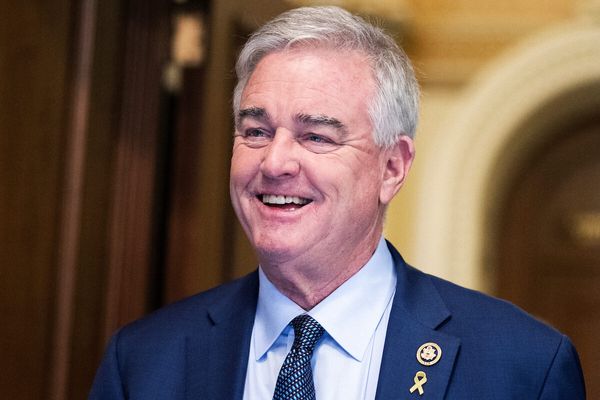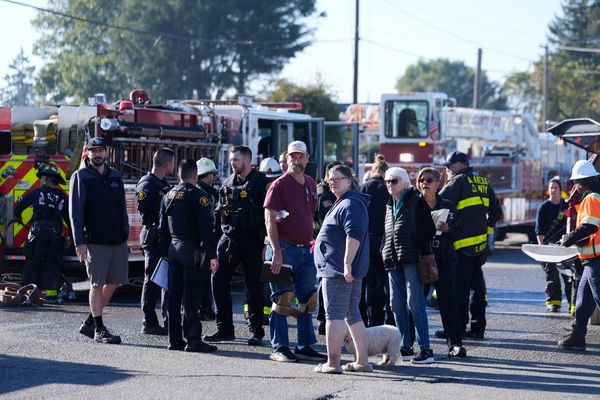
Steve Wright was often described, including in many of today’s announcements of his death aged 69, as a DJ. That, though, was barely the third of it. Influenced heavily by the US, where he frequently travelled and had family connections through marriage, Wright set out to become a “talk radio” presenter in the American tradition.
Trialled from the 1980s on BBC Radio 1 – but perfected between 1999 and 2022 in what he called the “big afternoon show” on Radio 2 – this style featured records split by interviews with actors and writers, with the songs further interspersed by what are known across the Atlantic as “comedy bits”.
Those, in another stateside borrowing, followed the format known as “zoo radio”, in which a group of support presenters interact with the main host, either under their own name or humorous pseudonyms: in times less sensitive to generational offence, Wright for a long timeshared airtime with an actor in the role of “old woman”.
Anyone who entered the studio to read the weather forecast or news headlines was likely to become part of the banter and action. Such dynamics are now common in the UK – on Zoe Ball’s Radio 2 breakfast show and even tentative attempts at such interaction on Radio 4’s Today – but Wright brought them here and made them work.
Crucially, in such characters as “old woman”, no offence was meant to her or senior listeners.
The question of to what extent Wright’s own radio persona was an acted character is complex. Listeners and radio critics teased him for the fact that every email (and, before that, letter) to any of his shows – including the Sunday morning Lovesongs that he presented on Radio 2 as recently as last Sunday – ended, or even began, “Love the show, Steve.”
The more he was twitted, the more enthusiastic these audience endorsements became. Such was his talent and fanbase that it remains just possible that every communication with him did include these words.
But beneath such cheesiness, which was traditional DJ shtick, his intellectual curiosity was genuine. If you appeared on his show to discuss a book, he was flatteringly familiar with its content.
I once found him in a coffee bar near BBC Broadcasting House reading a heavyweight work he had heard about on a Radio 4 programme.
Wright was a warm man who radiated enthusiasm and curiosity on and off air. He was known at BBC Radio for his kindness towards colleagues who had suffered personal or professional reverses. He had seen enough high-profile presenters on Radios 1 and 2 come and go to work as hard as he could to prevent the knock on his door. He held it off until 2022, when publicly he graciously agreed that it was time for another voice, though he was privately disconcerted.
Beneath the cheeriness, Wright was a driven perfectionist. His desire for the perfect guests and impeccable items led him to record many parts of the Radio 2 show. A driver on the M40, stalled in traffic, was once startled to see Wright becalmed in the adjoining lane, while his apparently live afternoon programme came out of both car radios.
But, whatever Steve Wright was, it was not a disc jockey. If any horse racing related metaphor is required, he was a long-distance champion thoroughbred.







